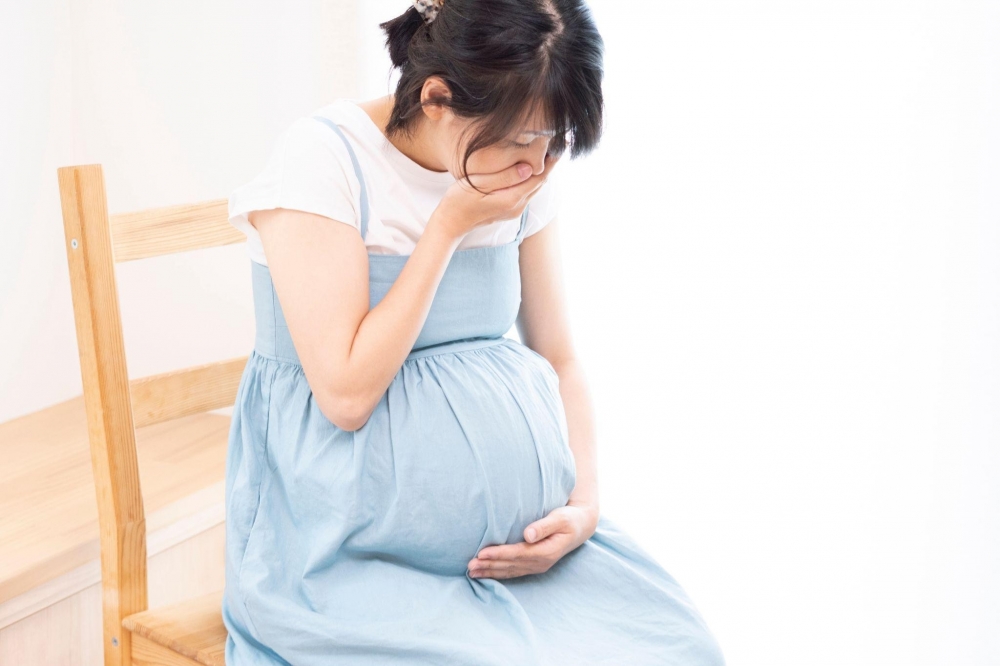Polycystic Ovarian Syndrome: Debunking the most common misconceptions with a professional
Think you know everything you need to know about Polycystic Ovarian Syndrome? You'd be surprised—we debunked the biggest misconceptions about PCOS with an expert
Polycystic ovarian syndrome—or, PCOS, as it is more commonly known—is a condition that often manifests as a mild menstrual disorder or as a severe disturbance of reproductive and metabolic functions. The cause behind PCOS hasn’t yet been established, but it has generally been attributed to a combination of genetic and environmental factors.
Globally, the disorder affects around 2 to 25 per cent of women, but a study published in 2018 estimated the prevalence of PCOS amongst Malaysians to be at 12.6 per cent. Now, in case you’re worried you may have the condition, the symptoms to look out for include: Irregular or infrequent periods (or no periods at all), difficulty in conceiving, acne and oily skin, male pattern baldness, being overweight, and hirsutism (having excessive hair over the face and body).
Why are there so many symptoms?

Put simply, the symptoms seen in PCOS are all attributed to the hormonal imbalance caused by the condition: Specifically, women with PCOS often have elevated levels of insulin, androgens (male hormones), and luteinising hormone, as well as depressed levels of follicle-stimulating hormone.
This may sound like there is too much going wrong all at once, but it’s actually a bit of a ‘butterfly effect’ situation—you see, your endocrine system is incredibly complex (and cool, for the record!), and these hormones are all intrinsically linked to one another. More on that later, though.
How is PCOS treated?
The first course of action in treating PCOS is to implement some lifestyle modifications. For instance, changing your diet to include foods with a low glycemic index has been shown in studies to reduce symptoms. Further, exercise has also been shown to improve menstrual cycle regularity and decrease the symptoms associated with too much testosterone.
Aside from lifestyle changes, there are also treatments that address specific symptoms. Firstly, hormonal birth control is often prescribed for irregular menses, with the added benefit of improving acne and reducing excess hair.
On that note, excess facial and body hair can be treated with the help of anti-androgens, laser therapy and electrolysis, or you could go old-school and opt for home remedies such as shaving, waxing, plucking, epilation, and bleaching.
Thirdly, insulin-sensitising agents may be prescribed to help with the high insulin levels and prediabetic state of women with PCOS. Finally, in the case of infertility, your doctor may prescribe medications such as Clomid, letrozole, and FSH injections to stimulate ovulation.
That said, though PCOS is relatively common, there is still a lot of misinformation surrounding it (which is the reality of most women’s health conditions, really). That’s why we’re debunking a few of the major misconceptions with Dr Wong Yen Shi, the consultant obstetrician and gynaecologist at SMC Velocity.
Misconception #1: If you have PCOS, you definitely have polycystic ovaries
This is probably the biggest misconception about PCOS floating around out there, and it’s by far the most understandable. However, despite the misnomer, women with PCOS do not necessarily have polycystic ovaries.
According to Dr Wong, the actual diagnosis only requires two of the following criteria:
- Irregular, infrequent or no menses
- Presence of excessive facial or body hair, and/or blood results that suggest excess male hormones
- Ultrasound showing polycystic ovaries
So, if your only symptoms were menstrual disturbances and hirsutism, you would still be diagnosed with PCOS, even if you did not have polycystic ovaries.
Similarly, having polycystic ovaries by themselves does not automatically mean that you have PCOS—there are several other explanations for polycystic ovaries that are completely unrelated to the disorder.
Don’t take this as a sign to DIY your diagnosis, though—it’s always best to get a professional’s opinion. This is mainly because though the criteria for PCOS are pretty specific, there are other conditions that present similarly, such as hypothyroidism, congenital adrenal hyperplasia, Cushing’s syndrome, hyperprolactinaemia, and certain tumours of the ovary or adrenal glands.
Misconception #2: PCOS is only an issue if you want to get pregnant
This misconception is probably the most ignorant one out there. Unfortunately, the reality is that fertility issues are just the tip of the iceberg for women with PCOS.
Dr Wong explains that while the hormonal imbalances associated with the condition affect the appearance, menstrual cycle and fertility of a woman, it also puts them at risk of developing long-term health issues, including:
- Endometrial hyperplasia (a premalignant condition of the womb)
- Uterine cancer
- Metabolic syndrome
- Diabetes
- Hypertension
- Obesity and its associated complications (type 2 diabetes and heart disease)
Not to mention, the effect that the condition has on appearance can greatly contribute to a decline in a patient’s mental health.
Misconception #3: There is no way to avoid the long-term health issues associated with PCOS
It is true that adopting the “perfect lifestyle” and treatment plan does not necessarily mean that you will definitely resolve your symptoms and regulate your cycle entirely. However, it should be noted that being proactive is instrumental in improving your quality of life.
“As PCOS women are more prone to diabetes and womb cancer, it is advisable to eat a healthy balanced diet, exercise regularly and maintain a normal weight,” says Dr Wong. “For women who are overweight, it would be beneficial to lose weight to achieve a BMI of 19 to 25.”
NOTE: It's well known that BMI isn't the best indicator of a healthy weight, but it is still widely used so just go with it.
Further, on top of your treatment plan, you should also be scheduling regular health and medical check-ups. “Regular check-ups would also aid in detecting the early onset of diabetes, hypertension and endometrial hyperplasia (a precancerous condition of the womb),” she adds.
In addition, with regards to uterine cancer and endometrial hyperplasia, it is important to ensure that you’re having a period (or a ‘bleed’) at least once every three to four months. “PCOS women are exposed to unopposed estrogen—an outcome of anovulation—increasing the risk of endometrial hyperplasia and uterine cancer,” says Dr Wong. “Menstruation aids in the shedding of the uterine lining, preventing its continuous thickening. With PCOS, hormonal medication is typically prescribed to initiate menstruation, but it’s best to speak to your own gynaecologist about your options.”
Misconception #4: If you have PCOS, you’re definitely infertile
While infertility is certainly a major issue, it should also be noted that having PCOS doesn’t guarantee that you will never have a family.
Infertility arises with PCOS because women with the condition do not ovulate regularly. If you’ll think back to your school biology classes, you’ll know that ovulation is kind of a necessity in the whole fertilisation process.
Therefore, it certainly won’t be as easy to get pregnant as it would be for someone without PCOS, but rest assured that two-thirds of women with the condition have been able to conceive without any medical intervention or procedures. However, if you have been trying to conceive for 6 months but have been unsuccessful, you should consider seeing a doctor.
Speaking of ovulation...
Misconception #5: You can use ovulation tests to plan your baby-making
Unfortunately, for those of you with PCOS who are looking to conceive, it’s unlikely that ovulation tests will work for you. The reason behind this boils down to the mechanism by which these ovulation tests work.
Basically, ovulation tests measure the amount of luteinising hormone in your system—just before you ovulate, your body releases a spike in the hormone to tell your ovaries to release an egg. The issue is that with PCOS your baseline luteinising hormone levels are perpetually high, and you may have several different surges throughout the month. Ergo, these tests do nothing.
Luckily, there are plenty of fertility options you can explore with your doctor—don’t give up hope just yet!
Misconception #6: You don’t need to use contraception if you have PCOS
We cannot stress this enough—if you don’t want a baby, you need to use birth control! You may not ovulate regularly, but you could still be ovulating. Therefore, there is still a risk of getting knocked up if you’re sexually active.
Plus, the pill can be useful in improving the symptoms associated with PCOS. According to Gynae Geek, the pill has been shown to increase the expression of a protein called 'sex hormone-binding globulin', which effectively decreases the potency of testosterone—this can help with acne and hirsutism.
However, while this sounds great, it is also important to remember that though the pill can be a very good way to improve your symptoms, 1) it isn't a cure and 2) it doesn't work for everyone. Further, it can indeed help with establishing a regular bleed, but it won’t ‘reset your hormones’. So, if you start the pill but don't adopt any lifestyle changes, you are still going to experience symptoms even after going off the pill.
Misconception #7: All women with PCOS are overweight
While it’s true that PCOS is typically more common in women who are heavier, it is possible to have PCOS and be a ‘normal’ weight. That said, it is always important to address weight when talking about PCOS.
From a scientific standpoint, having more adipose (fat) tissue increases your insulin resistance. Further, your adipose tissue is effectively its own hormonal powerhouse, so it can produce testosterone and other androgens. These two factors are major contributors to the symptoms seen in PCOS sufferers, from weight gain to menstrual disturbances.
It’s why weight loss and lifestyle management are always the first courses of action when treating PCOS. Dr Wong asserts that even a reduction in just “5 per cent of body weight has been shown to regulate menstrual cycles and improve ovulation and symptoms”.
However, it should be acknowledged that it is objectively more difficult for women with PCOS to lose weight because of their hormonal imbalances. So, don’t be discouraged if you’re struggling with your weight loss journey.
Misconception #8: The fertility struggles end once you finally conceive
Unfortunately, the road to motherhood is rough for women with PCOS. According to Dr Wong, the condition is associated with “a higher risk of miscarriage as a result of insulin resistance, obesity and even genetic abnormalities of the embryo.”
However, with the help of regular check-ups and the support of your doctor, a healthy, full-term pregnancy is definitely possible. Plus, for those seeking moral reinforcements, there are plenty of support groups in Malaysia filled with other women in the same position who can help to ease your mind.
Was this article helpful?
0 out of 0 found this helpful









